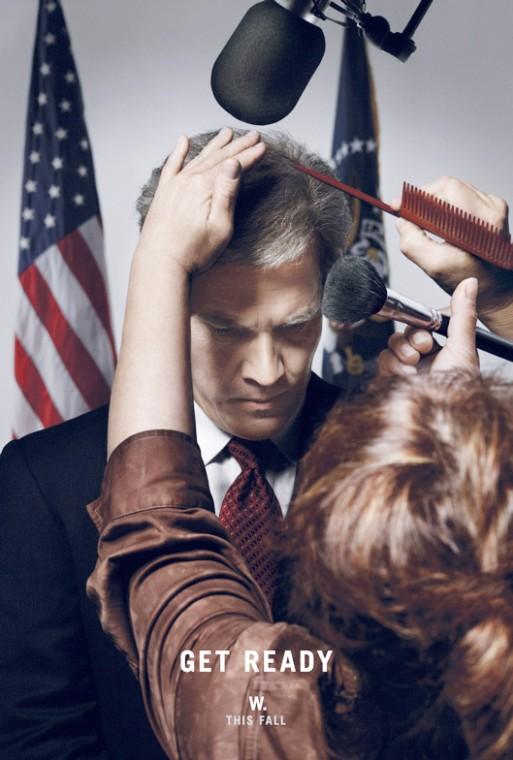We need presidents, our president, to be larger than life. His hands must stretch to the clouds, but his feet should be firmly planted to the ground with his people. The President should be the power and the glory of our nation, but can never forget that the power is given by people and not divine right. I’m probably a hopeless romantic for some things, but I think a lot of people are hopelessly romantic for this ideal, this kind of president.
I’m not going to say whether or not George W. Bush was such a president, and neither does the film W. I think it was put best when someone said this film about humanization, not justification.
W. follows the life of Bush from Yale through early 2004, from frat hazings to the big Mission Accomplished banner, constantly flashing back in between the two. Three time Academy Award winning director Oliver Stone plays it smart and avoids saying too many definite things about Bush’s character. Rather, Stone lets the audience form their own opinion of the man. He feels caged by the expectations of his father, his love of the Lord and the advice of a cabinet he trusts too implicitly.
It’s hard to tell how much of this is admonishment on the part of Stone, but most of the scenes boil down to the historical facts of a moment and focus less on character motivations. The character’s actions speak louder than words. There’s a really beautiful scene in a conference room where Powell and Cheney lay out the flaws and advantages, respectively, of the Iraq war provides. All the while Condy makes quips, Rummy plays everyone against the middle and Rove watches from the shadows. When Bush finally stands up and begins talking about freedom, he’s seems to be just an inflated figurehead filled head-to-toe with buzz words.
It feels weird to be watching a biopic about a presidency that isn’t over, and I wonder if Stone is too quick to judge. At times, he seems to want to stay the observer, casually documenting history. Other times he’s shoving pretentious dream sequences in our face and suggesting that maybe all Bush really loves is baseball. Moving between having no opinion on the subject to a lot of opinion on the subject at the drop of a hat is confusing.
While the film mostly wants to avoid telling you who Bush is, the times when it does feel awkward and almost offensive to the viewer. The audience is constantly receiving mixed messages from the director when they should be receiving layered messages from the character.
And that’s the problem. The film feels like a movie on Bush the character and not the man, the one who the media has eviscerated. I don’t feel like everything people see on camera, and certainly not what we know about their history, can tell us who a person is. I don’t feel like I know him any better or accept him for who he is any more after watching the movie. I just noted that the movie portrays him as a simple man who refuses to be out-Texas’d, out-Christian’d or out-Freedom’d. Josh Brolin plays a fine Bush, even incorporating his little laughs, squints and posture until its hard to imagine Brolin not being Bush and vice versa.
Truthfully, I wish this film had taken some kind of a stance because often it comes off as surrealist art that rejects being terribly dramatic or comedic, instead going for serious all the time. Once you hit the last 30 minutes, which concerns the Iraq war, it drags its feet and then ends suddenly. It seems Stone was trying to come off as thought-provoking but instead just leaves you asleep or annoyed.
There’s another excellent scene with Bush before Congress, where footage of Hilary, Kerry and McCain watching on are spliced into the movie. This gives you a feeling of timeless chaos as they watch on from the future like phantasms. This is where the movie should have ended because, topical as it is, it can’t divorce itself from the fact that it came out here and now, and that we look back only to make sense of what we see ahead.
Not a fun movie, but a decent one.








